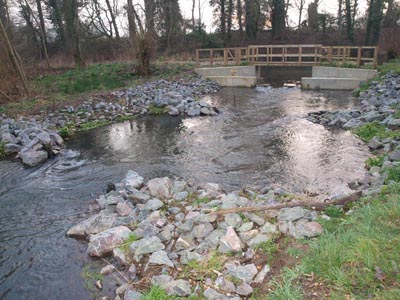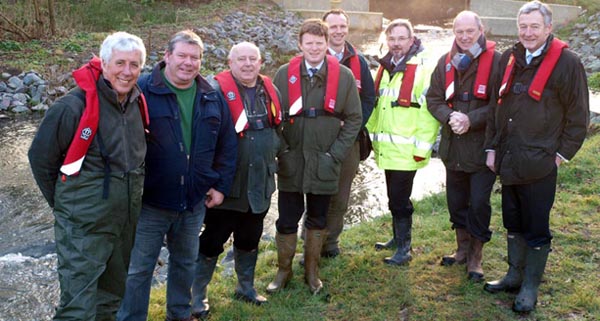Historically Arborfield weirs have been the most significant barrier to fish migration in the Loddon catchment, limiting access to key natural habitats upstream.
 The £400,000 improvement project saw more than 200 metres of complex river channel and backwaters constructed to bypass the weirs and allow fish safe passage upstream. The scheme means there is now 20km of free fish passage from the River Thames towards Basingstoke for a huge variety of fish, including sea trout, eel and barbel.
The £400,000 improvement project saw more than 200 metres of complex river channel and backwaters constructed to bypass the weirs and allow fish safe passage upstream. The scheme means there is now 20km of free fish passage from the River Thames towards Basingstoke for a huge variety of fish, including sea trout, eel and barbel.
Enhanced fish spawning and nursery grounds for juvenile fish have also been created and a hectare of nationally important wetland habitats has been restored benefiting wildlife including, otters, kingfishers and dragonflies.
Environment Minister Richard Benyon said:
“These improvements to the River Loddon are a brilliant example of what can be achieved when you get a range of groups working together.
This work means that both fish and wildlife habitats will be able to flourish, whilst also reducing the risk of flooding. This results in an environment that benefits wildlife and which local people can enjoy.”
Howard Davidson, Environment Agency Director South East, said:
“I’m really pleased with the fish and wildlife habitats that have been created. It’s been a delight to work with our partners and volunteers to achieve something special that will bring real benefits to the environment while taking strides towards improving water quality.”
The work was carried out by the Environment Agency in partnership with Thames Water, the University of Reading, the Farley Estate and Arborfield Angling Club to deal with longstanding and complex problems at the site and was jointly funded by the Environment Agency, Thames Water and other partners.











